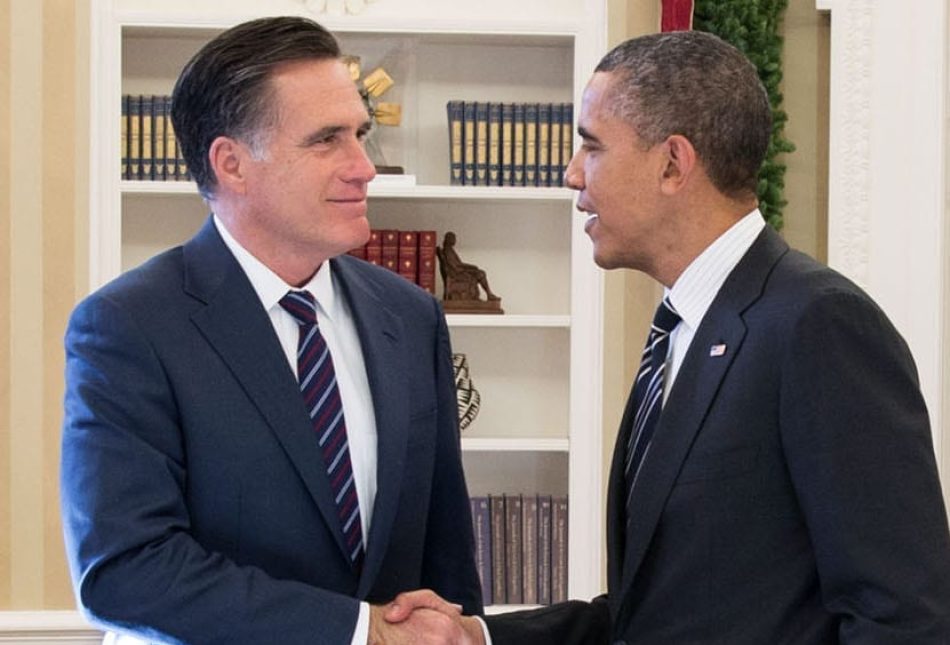The Campaign About Nothing

The show “Seinfeld” was said to be “the show about nothing.” In terms of the federal election, this election cycle might be called the campaign about nothing. The issue being avoided on a bi-partisan basis by most of the candidates of both major parties is our nation’s precarious fiscal condition driven by out-of-control spending.
Look through the websites and public pronouncements of the Republican and Democratic presidential candidates (Gary Johnson being the exception), New Mexico’s senate candidates, and even those running for the House of Representatives. You will find plenty of platitudes and talk of “cutting waste.” You will, among Democrats, at least, find plenty of willingness to raise taxes on “the wealthy.” Republicans, on the other hand, will talk about overturning “ObamaCare,” but you find few specific ideas for dramatically-reducing the $1.3 trillion annual federal deficit.
It is hard to argue that any issue can compare in importance to the deficit and the $16 trillion federal debt. Unfortunately, even Paul Ryan’s plan, which is better than Obama’s non-plan, hardly qualifies as “conservative.”
Obama’s budget would mean a 2021 budget that spends $2 trillion more than we do today, increase debt held by the public from 62 percent to 77 percent of Gross Domestic Product (GDP), and maintain massive annual deficits. This is a patently irresponsible proposal which is perhaps why few of either party in Congress have signed on to it.
Ryan’s plan comes in at more than a trillion dollars less, around $4.7 trillion. That sounds great, but aside from his much-criticized plan to reduce Medicare spending through the use of vouchers (probably the most specific and well-though-out-proposal in the document) his plan offers few details in terms of what to cut and what to keep in the federal budget.
Even that modest plan has not been embraced by the GOP’s candidate Romney.
Politicians have a problem with offering specific cuts because every program in the budget was put there to placate a powerful special interest. If you as a politician target specific programs for elimination, you likely alienate an entire special interest group that votes based on that single issue without necessarily picking up support from the average voter.
There are some tough discussions to be had about entitlement reform, but there are also some “easy” cuts that could save billions of dollars annually. All prospective members of Congress should support the end of the ethanol mandate that forces Americans to pay $40 billion a year in higher food prices and costs taxpayers $1.78 in subsidies for each gallon of gasoline that corn-based ethanol replaces.
Another boondoggle from the energy sector is the $24 billion that the Congressional Budget Office says is spent annually energy subsidies and special tax breaks. Liberals decry subsidies for “dirty fossil fuels” and conservatives oppose subsidies for so-called “renewables.” Why don’t we put them on a level playing field by cutting all energy subsidies and industry-specific tax breaks? If states want to subsidize or mandate “green” energy, they can do so, but get the federal government out of it.
Lastly, there is the issue of “corporate welfare.” This involves forcing average taxpayers to pay freight for big business. According to the Cato Institute, the cost of nine programs and with the sole purpose of distributing tax dollars to corporations include the recently renewed Export-Import Bank, International Trade Commission, the Small Business Administration, and the Overseas Private Investment Corporation. Annual subsidies come to $20.4 billion.
Cutting $50 billion or so in obvious waste won’t solve our $1.3 trillion annual budget deficit. In fact, the relatively small number of obviously-wasteful programs illustrates the reality that most of the programs driving our budget problems – like entitlements and an overweening national security state – are perceived as “sacred cows” by wide swaths of the American populace.
The left’s talk about balancing the budget by taxing the wealthy is just silly and will drive businesses and the wealthy overseas or out of business. Tax reform that lowers rates and eliminates deductions and loopholes like those for home ownership and employer-purchased health insurance would raise some revenues and eliminate distortions in our economy, but, like so many spending programs, these ideas are politically-challenging to enact.
Our candidates and elected officials won’t campaign on cuts to even the most wasteful federal programs until they benefit politically from the decision to do so. It is up to us, the American people, to demand specific cuts and a return to balanced budgets. Anything else takes America takes another step down the road to ruin.
Paul Gessing is the President of New Mexico’s Rio Grande Foundation. The Rio Grande Foundation is an independent, non-partisan, tax-exempt research and educational organization dedicated to promoting prosperity for New Mexico based on principles of limited government, economic freedom and individual responsibility.

